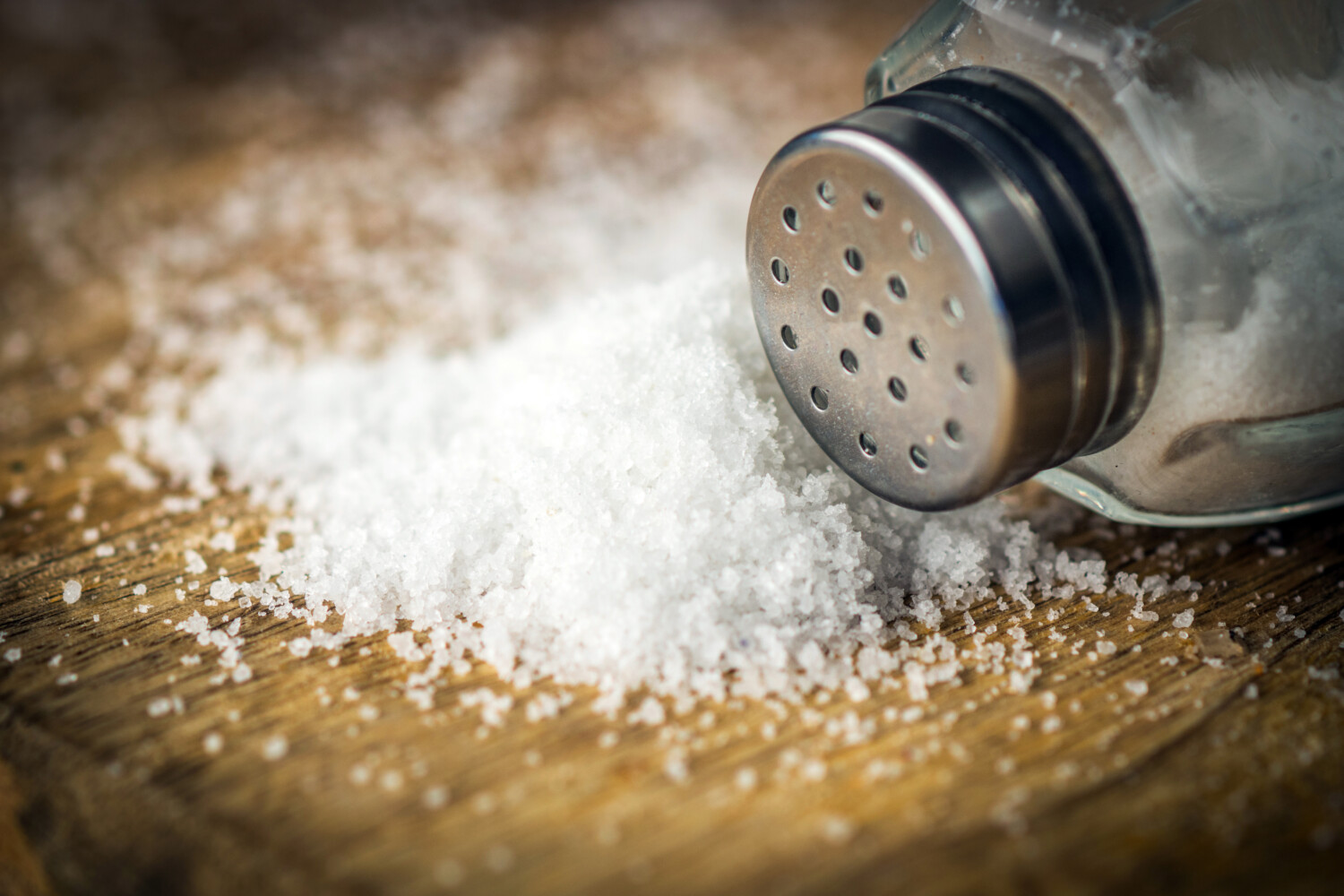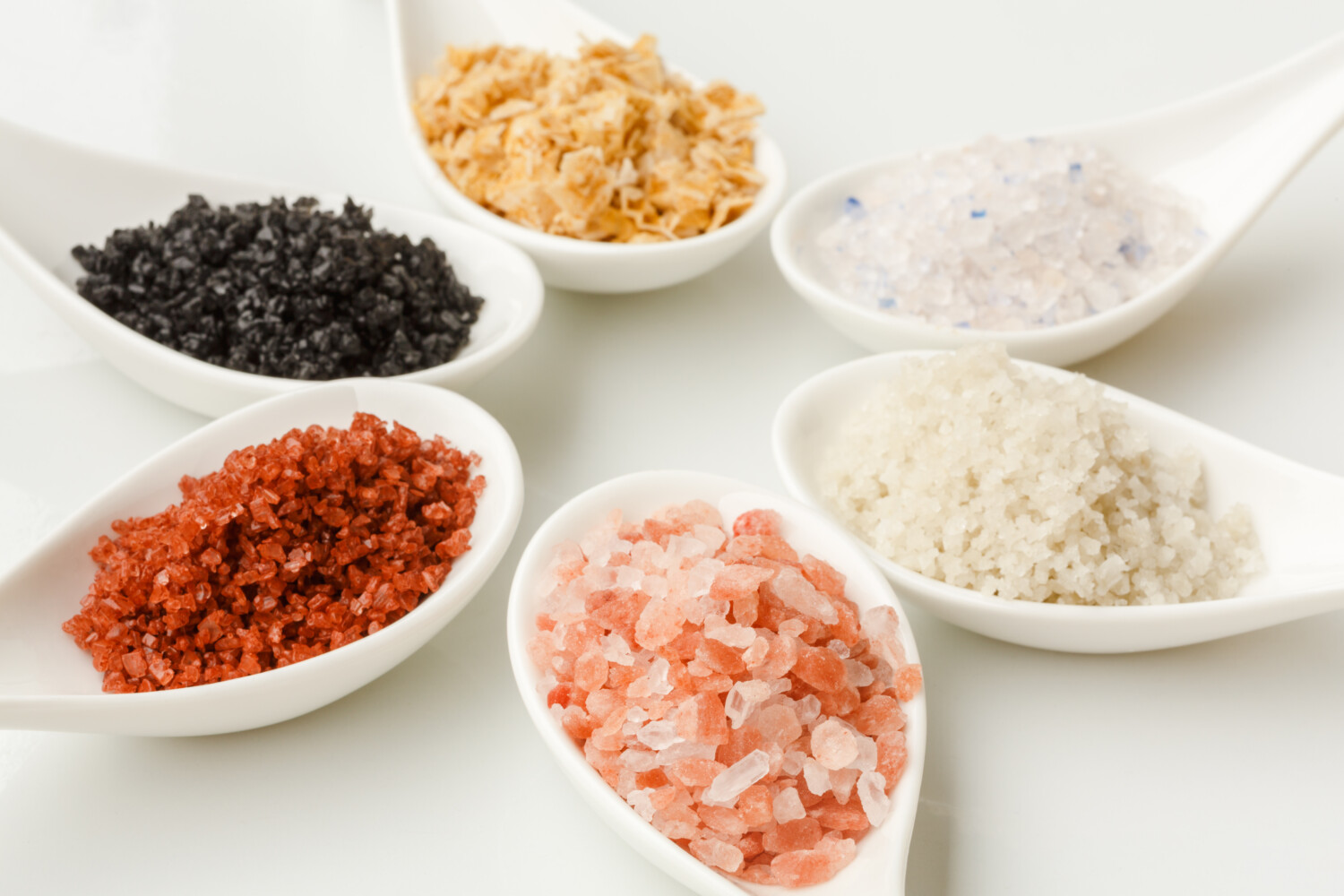Salt, which adds flavor and texture to dishes and has many household uses, is a pantry essential. There are many varieties of salt used in cooking and baking. While table salt is the most widely used form, other varieties are also available. Sea salt, table salt and kosher salt are popular types of salt that offer different benefits to the culinary world.
But what makes each variety of salt unique, and how should you use them? For instance, what is kosher salt versus sea salt? Learning about their flavor profiles, nutrient content, usage methods, and more can help you understand the similarities and differences. Then you can decide which type best suits your cooking needs by comparing kosher salt, sea salt and regular table salt.
What is Table Salt?
Table salt is a staple in kitchens around the world. Granulated white salt is typically mined from underground deposits and processed to remove other minerals and impurities. Table salt is made of 97%-99% sodium chloride (NaCl), with small amounts of other compounds present.
Table salt production typically involves mining the underground deposits, then processing the product to remove minerals and impurities. Afterward, most table salts are fortified with iodine, an essential nutrient for human health. This makes table salt unique compared to other types of salt, like sea salt or rock salt, which are not fortified with iodine.

Table salt can be used for cooking, baking and seasoning at the table. Its uniform crystal shape makes it ideal for blending and baking, while its flavor makes it popular for seasoning soups and sauces. Table salt can also be used as a preservative in some foods, helping them stay fresh longer.
Table salt is an essential ingredient in many recipes due to its unique properties and flavor profile. However, it’s important to note that too much sodium can have adverse health effects, so all salts should be consumed in moderation.
What is Sea Salt?
Sea salt is a type of salt produced by seawater evaporation using the sun or machinery. Sea salt has been used for centuries in foods, cooking, cosmetics, and food preservation. It differs from table salt because it is less processed and retains some of its natural minerals, such as calcium, magnesium and potassium.
Sea salt production begins with the collection of seawater from the ocean or saltwater lakes. The water is then heated to evaporate the moisture, leaving the sea salt crystals behind. The crystals are then dried and packaged for sale. Sea salt comes in a variety of colors and textures depending on where it was harvested and how it was processed.

Sea salt’s unique flavor makes it ideal for cooking, baking and seasoning dishes, including meats and vegetables before grilling or roasting. It can add flavor to salads, soups, sauces and marinades. Sea salt can also be used in homemade beauty products such as face masks or body scrubs.
When using sea salt to season your food, it’s important to remember that it may provide more flavor than table salt, so you may want to use less. A little bit often goes a long way.
Kosher Salt vs. Sea Salt
Kosher salt and sea salt are different types of edible salts with distinct characteristics. Kosher salt is a refined rock salt that doesn’t contain any iodine or other additives. It has a much larger grain size than table salt with a crunchy and coarse texture. On the other hand, sea salt has a coarser grain than table salt. As a result, its flavor is more potent than table salt but not as intense as kosher salt.
The name “kosher” comes from the fact that this type of salt is traditionally used in kosher food preparation. The koshering process involves salting meat to remove any surface blood before cooking, which helps ensure that the food meets religious dietary laws. However, not all kosher salts are certified; some brands may contain anti-caking agents or other additives that are not considered acceptable under traditional Jewish law.

Kosher salt is also known for its versatility. Its larger crystals make it ideal for sprinkling on top of dishes like salads and roasted vegetables, while its coarseness makes it great for rubbing into meats before cooking. It also has a milder flavor than table salt, so it can be used in larger quantities without overpowering the dish.
Overall, kosher salt is an excellent choice for home cooks looking for a versatile seasoning option with a mild flavor and easy-to-measure texture. Whether you’re using it to season your favorite dishes or prepare meats for roasting, grilling or smoking, this type of salt can add depth and flavor to any meal.
While all types of salt have their own unique flavor and texture, the most significant factor to consider is how it will be used in your cooking. If you want a mild, slightly salty taste and don’t need too much of it to get the desired results, then table salt is a perfect choice. However, kosher or sea salt may be more suitable for dishes that require more intense flavor and seasoning, such as salads or steaks. Knowing the basics about each type of salt and using them correctly when comparing table salt versus kosher salt versus sea salt means you’ll be able to enjoy delicious, flavorful meals.
This story originally appeared on Simplemost. Check out Simplemost for additional stories.


